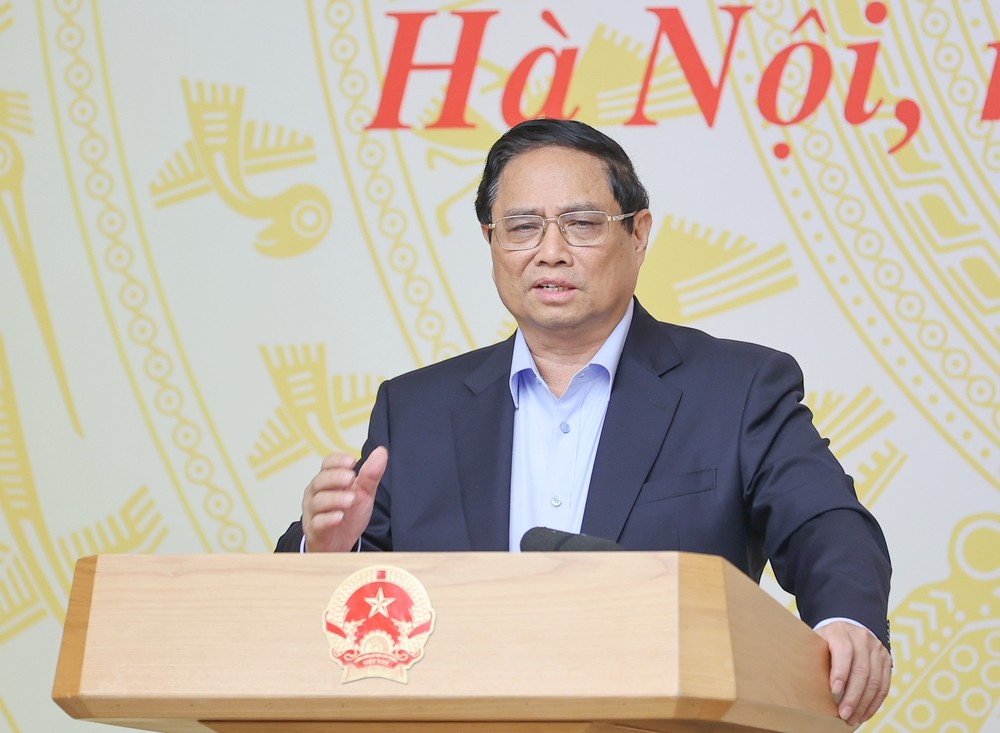
At the conference evaluating the results of digital transformation, there were eight notable outcomes. Among them, the digital government continues to make progress. The provision of online public services for citizens and businesses has been strengthened with 16.4 million accounts on the National Public Service Portal; providing 4,543 out of 6,325 administrative procedures and 43 out of 53 essential public services.
The digital economy and digital society continue to grow strongly. Vietnam’s digital products continue to develop and are exported worldwide. According to the report from the General Department of Vietnam Customs, digital product exports increased from US$113.5 billion in 2021 to $117.3 billion in 2023 while in the first half of 2024, exports reached $64.9 billion, a 23 percent increase.
Revenue from software and information technology services has also seen significant growth. In 2023, it was $13 billion while in the first half of 2024, it was $6 billion; plus, exports in 2023 reached $7.5 billion, and in the first half of 2024, they reached nearly $3 billion.
Many leading global technology companies have made substantial investments in Vietnam, committing to new investments and expanding their presence, especially in emerging fields such as electronics, semiconductor chips, research and development, and artificial intelligence.
E-commerce revenue increased from $13.7 billion in 2021 to $20.5 billion in 2023. Hundreds of One Commune One Product (OCOP) items have been sold through domestic and cross-border e-commerce platforms, providing livelihoods and helping increase farmers’ income.
Cashless payments have been widely implemented nationwide. The adult account ownership rate for non-cash payments reached 87 percent, surpassing the 2025 target of 80 percent. An integrated electronic tax system covers tax registration, filing, payment, and electronic tax refunds. Additionally, the nationwide electronic invoice system processes 8.8 billion invoices.
Digital transformation has significantly improved services for citizens and social welfare. Examples include online high school graduation exam registration, online university admissions, data integration for driver health checks, birth certificates, and death registrations. In social insurance, during the peak of the Covid-19 pandemic, the electronic system disbursed VND31,836 billion to over 13.3 million workers. All 63 provinces and cities now provide social welfare payments through accounts, benefiting 1.96 million people with a total amount exceeding VND8.28 trillion.
Many international organizations have positively evaluated Vietnam's digital transformation efforts. For instance, the 2022 E-Government Development Index ranked Vietnam at 86 out of 193 countries, the Global Innovation Index has consistently placed Vietnam among the top 50 innovative countries since 2018, reaching the 46th position out of 132 in 2023 and the Postal Development Index for 2023 rated Vietnam at level 6 out of 10, ranking 47 out of 172 countries.
Addressing the conference, Prime Minister Pham Minh Chinh instructed the Ministry of Public Security, the Ministry of Information and Communications, and the Government Office to incorporate feedback, improve, and propose the Government’s resolution on digital transformation for unified implementation in the upcoming phase.
For online public services, the Prime Minister urged ministries and agencies to strive for the following targets by the end of 2024. Specifically, 80 percent comprehensive online public services must be attained and 40 percent of the adult population use online public services.
Moreover, 90 percent of citizens and businesses show their satisfaction in administrative procedure resolution. By 2025, all administrative procedure records should be linked to personal identification. Ministries, agencies, and localities should accelerate digitization of records and administrative results, build databases at the sector and local levels, and connect them to the national database.
The Prime Minister also instructed the Ministry of Public Security to promptly improve proposals for the Personal Data Protection Law and the Data Law. Additionally, they should collaborate with other ministries, agencies, and localities to establish a roadmap for essential features on the VNeID application. This includes completing legal records, electronic health records, birth certificates, and marriage certificates, ensuring nationwide access and utilization by citizens before December 31, 2024.
























